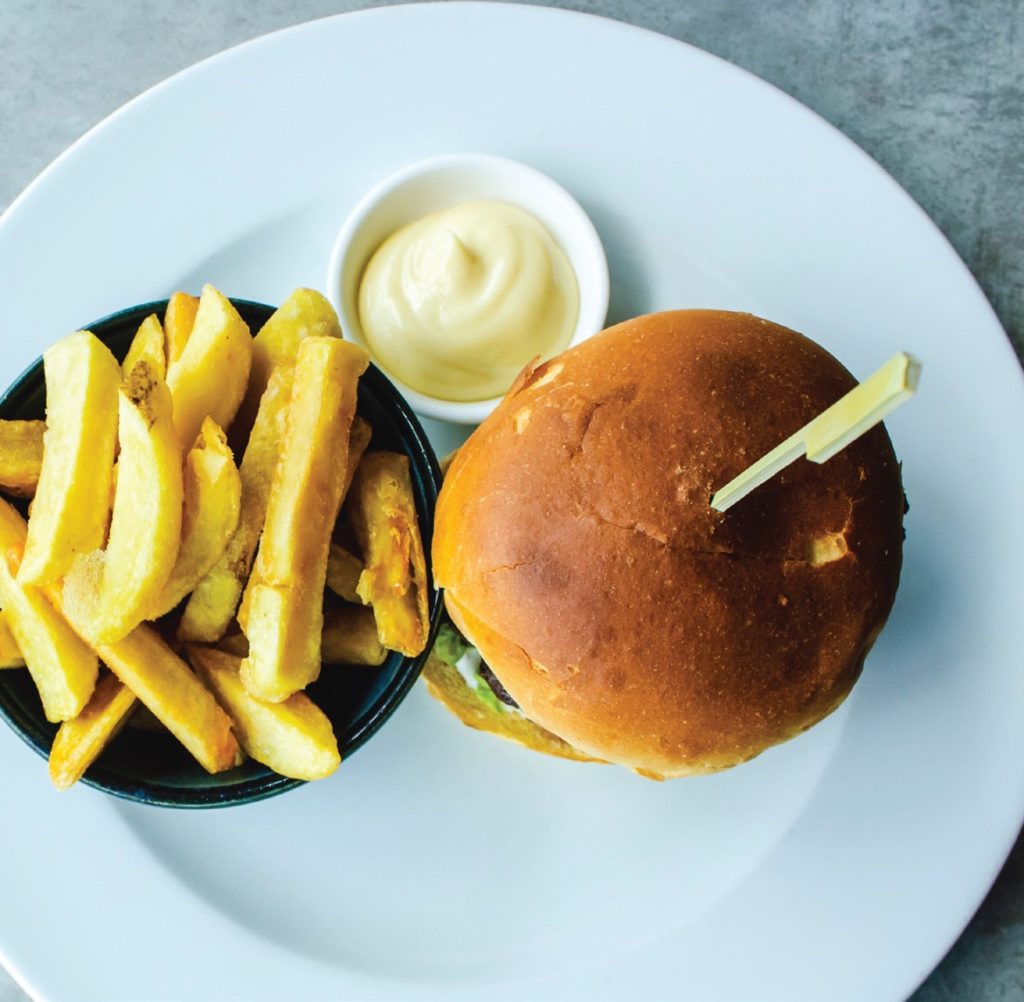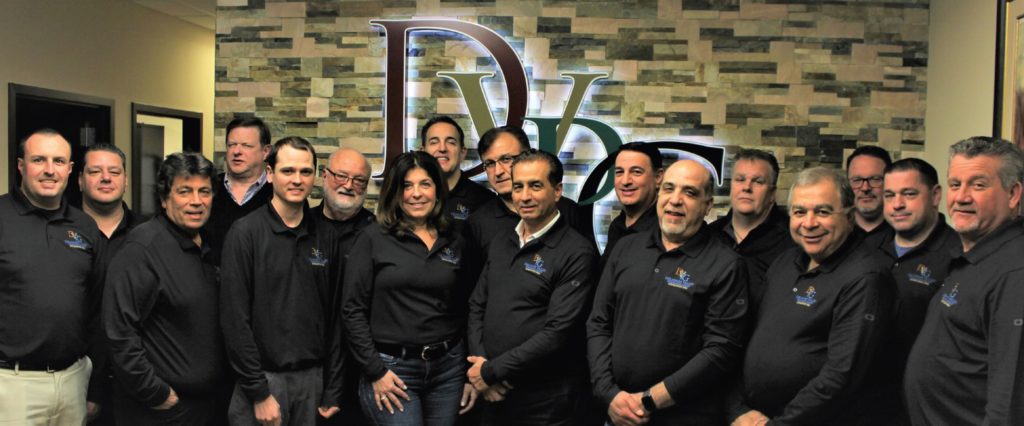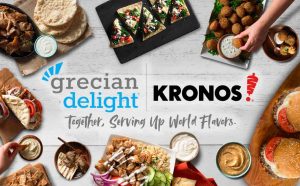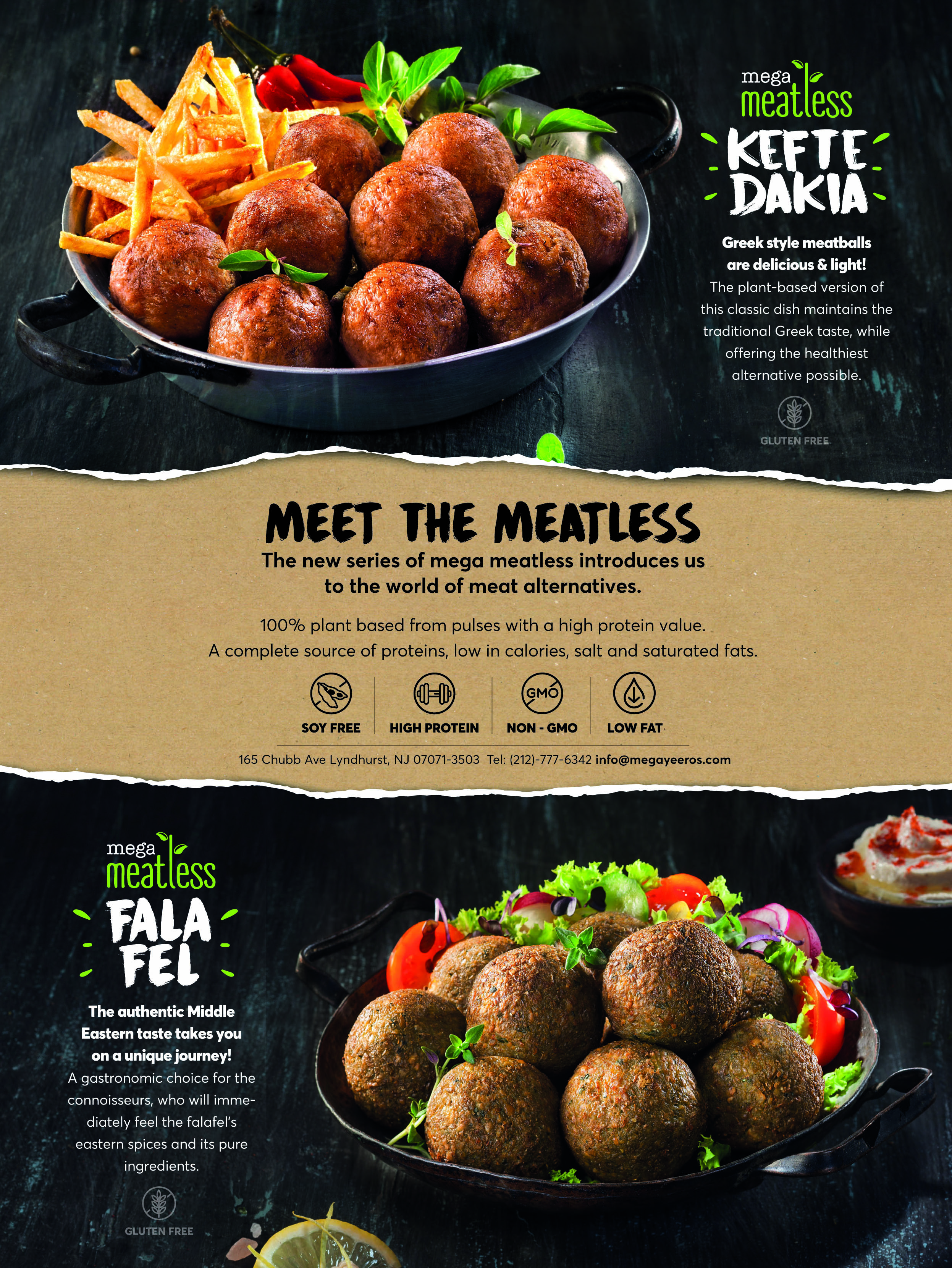Strength in Numbers
Posted by estiator at 8 November, at 06 : 06 AM Print
COVER STORY

Greek-founded purchasing co-ops change the game for independent restaurants.
By Michael Kaminer
Greeks didn’t invent the restaurant purchasing co-op. But Greeks have been pioneers in the industry, launching some of the nation’s most successful purchasing groups for independent restaurateurs.
The concept behind purchasing co-ops is straightforward: Owner-members unite to increase the competitiveness of their independently owned businesses. By pooling their buying power to acquire inventory and services, they lower operating costs, better respond to competition, and improve their businesses’ overall performance. Co-op power “levels the playing field between family-owned enterprises and mega-retailers,” according to consulting company ZenBusiness.
After a year in which co-ops became champions for their members—especially for restaurants confronting generational challenges of Covid—Estiator caught up with leaders of three leading restaurant purchasing co-ops, all of them founded by Greeks.
Pan-Gregorian Enterprises of Upper New York
______________________________________________________________________________________________________________________________
pgeuny.com
Fishkill, NY

The numbers say it all on the home page of Pan-Gregorian Enterprises of Upper New York: Distributor savings of up to 6%. Manufacturers’ discounts of up to 30%. Price monitoring… Priceless.
“The bottom line is reducing cost of items you’re already buying,” says Lisa Marcinelli, business consultant at the 32-year-old, Fishkill, NY-based co-op. “I tell restaurants that if they can save more money with someone else, please do. Very rarely is anyone better.”
As its name implies, Pan-Gregorian has Greek DNA. “Our roots are Greek, but we’re open to anyone who wants to save money,” Marcinelli tells Estiator. “All five of my board members are Greek, and they all own diners.”
The co-op was founded “to help little guys, when the founders noticed franchisees were getting prices that independent owners and operators couldn’t even compete for.” Of the co-op’s more than 500 members, about a third are diners, Marcinelli says.
[Editor’s note: While six regional co-ops share the Pan-Gregorian brand name, they’re not connected. Each operates as a separate entity, with its own board, mission, territories, memberships, and partner relationships.]
Pan-Gregorian Enterprises of Upper New York serves all of New York State except New York City, Marcinelli says. A selective relationship with vendors is a distinctive feature of PGE UNY. “Some purchasing organizations take any distributor,” she says.
Foods is the co-op’s largest distributor; PGE UNY also aligns with NJ-based Ginsburg’s Foods, Michigan’s Gordon Food Service, Watertown, NY-based Renzi Foodservice, and Maplevale Farm0073 in Falconer, NY. The co-op’s partners include food and non-food giants like Pepsi, ADP, Ecolab, and Waste Management.

Another edge, Marcinelli says, is the co-op’s highly developed back end. “We are by far most the sophisticated GPO in running our business,” she says. “We have very sharp businesspeople on our board. We have growth incentives. There is no GPO anywhere that gives back more to its members as a result. Everything you buy, you get a rebate on.”
PGE UNY builds multiple layers of rewards into its member purchasing programs. “If you pay your bills on time, you get 2.5% on what you buy,” Marcinelli says. “That’s one check. With Pepsi, if you buy 350 gallons, you get a very rich reward. We have over 60 manufacturers’ programs. Every time you buy, I get a report. The system calculates how much you bought, the rebate per case, and the amount that goes into your rebate bucket.” The total gets paid out once a year.
“PGE UNY has not only made ordering easy—I always know I am getting the best price possible—but they keep a handle on the office costs,” says member Toniann Avery, co-owner of Bagels and Bakes Inc. in Rotterdam, NY. “This means each year I get a significant check back. They never disappoint. So many ways to save.”
The co-op also acts as “a free purchasing department” for members, Marcinelli says. “If a member calls and says, ‘My french fries are irregular,’ I’ll check in with McCain,” she says. “I work for each member. Each of them is my boss.”
PGE UNY’s five most-purchased items include “stuff diners use the most—fry oil, french fries, burgers, eggs, bacon,” Marcinelli says. As diligent as Marcinelli has been, the co-op has faced supply-chain issues through the pandemic “like everyone—God, yes. Members understand that distributors are struggling as much as restaurants. You order ten cases but only get three. Members can get upset, but they understand.”

Delaware Valley Purchasing Group
______________________________________________________________________________________________________________________________
dvpgroup.com
Cherry Hill, NJ
In 1984, a group of Greek diner owners in New Jersey noticed a bothersome trend: Chains like Bennigan’s, Denny’s, and TGI Friday’s were invading their turf.
Those savvy restaurateurs realized the chains would gain an edge on pricing because of their parent brands’ buying power. So after a meeting in Cherry Hill, NJ, 25 industry pioneers incorporated a non-profit cooperative called Delaware Valley Purchasing Group.
The goal was to find strength in numbers. And judging by the co-op’s track record, it’s been a spectacular success. According to president Rick Aurite, the co-op now boasts 1,650 members, all of them proprietors of independently owned and operated restaurants in New York, Delaware, and New Jersey.
The co-op works with 270 manufacturers of food service products “to negotiate the best possible prices and rebates for our members,” Aurite tells Estiator. “That’s the leverage buying.”
“We negotiate and renegotiate with existing manufacturers, and I take calls daily from manufacturers who see the benefit and want to be part of our group by offering rebates or discounts,” he says.
On average, DVPG members get back $7,800 annually in reimbursements, rebates, and distribution of profits from the co-op. “Some of them can make close to six figures,” Aurite says. “It’s based on your volume and your commitment to buying products within the program. And at the end of the year, every penny of profit goes back to our members.”
Diners and “family restaurants” still make up about DVPG’s membership, Aurite says. Pubs and taverns make up another 25%, with 10% of membership in catering and about 5% “in Italian and pizza,” he says. “And probably 40 or 50% of our membership base is still of Greek descent.” The co-op’s by-laws don’t permit franchise owners to join. With advantages that seem so clear, why would a restaurateur not join a co-op? “Sometimes they feel they can do it on their own,” Aurite says. “Some don’t want to pay membership dues to participate. And others spec products they prefer to use other than products they can access through the co-op.”
Like almost anyone in the restaurant-supply ecosystem, DVPG has faced what Aurite calls “supply-chain challenges” through the pandemic. But the co-op has also taken ambitious steps to counter that, including the creation of its own brand.

“Farmer’s Choice is a trademarked brand that features seven of our most popular, highest-volume items,” Aurite says. The products include bacon, chicken tenders, sausage, bottled ketchup, and french fries, with several SKUS in some categories. “Farmers Choice is a big point of differentiation,” Aurite says. “We partner with manufacturers to produce those products. So we have a better handle on supply-chain issues because they’re our brand and our label. We’ve had some issues with Farmer’s Choice, but not nearly as much as with other distributors.”
For 2022, Aurite predicts even faster growth. “We’ve seen a spike in membership during Covid, about 20-30% over the past 18 months,” he says. “Restaurateurs are looking for every way to save money and help their bottom lines in these tough times.”
GARC Restaurant Cooperative
______________________________________________________________________________________________________________________________
garcpurchasing.com
Des Plaines, IL
The name of this mighty Midwestern co-op leaves no doubts about its origins. The Greek American Restaurant Co-op (GARC) was born when a group of Chicago restaurateurs banded together to leverage their buying power—and support their community. Originally called the Greek American Restaurant Association (GARA), the organization made philanthropy part of its mission, supporting Greek American initiatives.

More than 35 years later, GARC boasts more than 1,800 members across Chicago, Wisconsin, and Indiana. GARA, a separate entity since 2003, continues to champion community causes like Chicago’s Hellenic Museum and the Greek-American Rehabilitation Center. “And if there are restaurants facing a crisis, like illness or financial hardship, GARA helps them,” says Steve Theofanous, the owner of Around the Clock restaurant in Crystal Lake, IL, and GARC’s president. “There was a hospital getting built in Greece; we gave them seed money.”
Likewise, part of GARC’s mission is “to advocate for restaurants,” Theofanous tells Estiator.
“The original idea was to give rebates back, and we evolved to do a better job with purchasing. Through the pandemic, the goal has been to support restaurants, give them information, and share insights on the operational side of the business as Covid requirements kept shifting,” he says.
Most importantly, Theofanous says, “we assisted our members in getting funding that the government was making available through the Restaurant Revitalization Fund and Paycheck Protection Program. Some of our members didn’t have accountants or resources to complete the paperwork, so we connected them with people who could do that. It was about networking and assistance.”
The co-op is a win-win, Theofanous says. “We don’t only provide savings for members—we provide support for vendors, who love the opportunity to connect with restaurants in the community.”
GARC membership offers access to partners including Sysco, US Foods, and Panos foods, “our main-line distributors,” Theofanous says. The co-op also offers access to discounted prices from smaller vendors for specialty items like lobster, bread, coffee, and linen. The best-selling items are “things we all use,” Theofanous says, including oils, ketchups, and jellies.
One of the co-op’s key relationships is with Coca-Cola, Theofanous says. “We have an agreement where there’s no independent restaurant that can get a better price than a GARC member,” he said. “The big chains have their own deals, but Coca-Cola is working in close partnership with us.”
In the bigger picture, GARC helps restaurant owners feel the strength in numbers. “A lot of small restaurants feel they don’t have much power. When they join us, they feel they have a voice,” Theofanous says. When McHenry County, IL, decreed a shutdown of all restaurants, GARC banded its members together to explore a class-action lawsuit. “The lawsuit didn’t get traction, but in 48 hours, we had 37 restaurants join the class action,” he said. “The point is that we were able to organize a large number of people in a very short space of time.”
Over the next five years, Theofanous predicts continued growth for GARC. “I see membership going to at least 2,000,” he says. “Some of our members went out of business during the pandemic, but a lot of restaurants are coming in, and the crisis brought in many more new members.”
Independent restaurants “can feel they’re isolated. With GARC, they can become part of a bigger group. They can speak with a louder voice.”
LEVELING THE PLAYING FIELD
A handy guide to co-ops around the nation
As Estiator readers know, independent restaurants often can’t get the same discounts that big chains squeeze out of vendors and suppliers. Purchasing co-ops help level the playing field. By connecting large numbers of like-minded buyers, co-ops leverage buying power to negotiate discounts and rebates.
Everyone benefits. Vendors gain access to a large buying pool. Owners and operators get lower prices for key supplies, along with a reliable supply chain. Many co-ops also offer back-end support to track purchasing histories.
Estiator readers may be familiar with co-ops founded by Greek pioneers in the industry. Here’s a quick guide to other co-ops in a range of categories and specializations:
[Editor’s note: While six regional co-ops share the Pan-Gregorian brand name, they’re not connected. Each operates as a separate entity, with its own board, mission, territories, memberships, and partner relationships.]
Pan-Gregorian Enterprises, Inc., of New Jersey
pge-nj.com
With an all-Greek board of directors, this co-op serves 320 “stockholders” and 800 associate members across Metro New York, Long Island, Upper New York, Connecticut, Maryland, North Carolina, and South Carolina. A wide range of food and service vendors includes McCain, Pepsi, Cintas, and Eastern Bag & Paper Company. The co-op is based in Kenilworth, NJ.
Pan-Gregorian Enterprises of Metro NY and LI
pgeny.com
Serving the metro New York City area and Long Island, this co-op maintains partnerships with food and non-food brands like Pepsi, Heinz, Nestle, Ecolab, First Data, and Airgas, along with manufacturers and distributors including DiCarlo Food Service, Pepsi, Bartlett Dairy, Driscoll Foods, and Big Apple Desserts. The co-op’s network includes more than 3,500 restaurants.
Restaurant Supply Chain Solutions
rscs.com
RSCS, based in Louisville, Ky., is the largest purchasing cooperative in the quick-service sector. As the exclusive supply chain management organization for Yum! Brands, Inc., and its three national restaurant brands—KFC, Pizza Hut and Taco Bell—it also provides services for the A&W and restaurant system through specific purchasing agreements.
Restaurant Operators Cooperative
albanyroc.com
Based in Albany, NY, Restaurant Operators Cooperative was formed in 1992 “to provide independent restaurant operators with competitive supply prices to level the playing field with the growing number of national chains,” according to its site. The group claims over 220 members and over $40 million in annual purchasing power.
Quality Supply Chain Co-Op, Inc.
wqscc.com
Created with franchisees in mind, QSCC is the independent purchasing cooperative for the Wendy’s system. The co-op is the third-largest purchasing cooperative in quick-service, claiming nearly $4 billion in buying power. “We are also part of the Wendy’s extended family and are dedicated to supporting our members and the Wendy’s system,” its site says.
Independent Purchasing Cooperative
ipcoop.com
Another co-op created for franchisees of a single brand, IPC launched in 1996 to serve as the purchasing and services cooperative for Subway Franchisees in the U.S. and Canada. Created through the cooperative efforts of the Subway Franchisees, “it is a model of what can be achieved through a strategic approach to services, supplies, equipment, logistics, information and supplier relations in a multibillion-dollar food service business,” says its site.
Restaurant Services, Inc.
rsiweb.com
Twenty-year-old RSI is the independent supply chain management and distribution cooperative for the Burger King system, “working on behalf of BK restaurants in the United States to secure the best possible commercial terms for food, packaging, promotional products, supplies, equipment, distribution services and more.” The co-op boasts annual purchasing power of more than $3 billion.
Dining Alliance
diningalliance.com
Calling itself the nation’s largest group-purchasing organization for restaurants, Dining Alliance boasts 60,000 members and combined purchasing power of $12 billion. Founded in Rochester, NY in 1998, the co-op launched with one contract—Pepsi, which the co-op still offers. It touts major technology investments among its advantages.

















